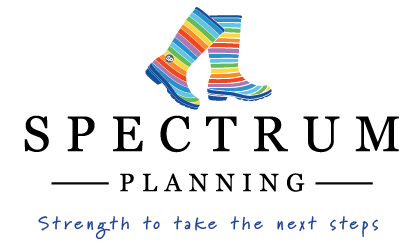by Gary Spencer
“I want to live in a world where we don't have such low expectations of disabled people that we are congratulated for getting out of bed and remembering our own names in the morning.”
These profound words of Stella Young have a Martin Luther King ‘ring’ to them.
Only months ago, Stella penned a letter to her 80 year old self, poignantly and prophetically introducing her letter saying that she couldn’t really write the letter… “without talking about the assumption, the expectation, that people like us die young”.(1)
I was saddened to hear of her passing earlier this week and this has moved me to put down some of my thoughts.
At the beginning of July last year, I was fortunate to hear Stella speak at the launch of the National Disability Insurance Scheme. Obviously, I recognised her face from her media profile, and enjoyed her wit and determination not to be limited by the body she was born with. She was gutsy, and unafraid to campaign for the NDIS as a pseudo spokesperson for the disabled. Besides being heavily involved in NDIS and her media career, it was her personal story that resonated with us.
Her story was of one of resilience and perseverance. And to be honest, it was an inspiration to me. But in April this year, she gave a TEDxSydney (2) talk, entitled "I'm not your inspiration, thank you very much", in which she de-constructed society's habit of turning disabled people into what she called "inspiration porn". “Inspiration Porn’ according to Stella, can be described as the way that people with disability have been used as objects of pity and faux inspiration for decades.
Reflecting on this made me ask what the underlying driver might have been for her comments.
We all long for acceptance and we want to be noticed by others (but only for the right reasons). We all want to be someone of significance who is held in high regard. We don’t want to be patronized because we are doing better than we are expected to at ordinary things. Praise like this has no real meaning to the receivers. It is only when they feel accepted, unconditionally, with no strings attached, that their doubts, fears, and inadequacies will go out the window. When that sense of belonging is established, you have tapped into a basic human need.
Often individuals increase their feelings of acceptance by building their association with certain people, places, or things. This has been referred to as the Social Identity Theory.(3). We all desire to have a sense of belonging. People with disability want to be accepted as the unique person that they are (just like the rest of us) not to be defined by their disability. They are human like us all and we need to give them respect and acceptance for what they do as a normal part of being human (with all the diversity that brings).
It leads me think of our own special needs children. What are we saying to them? What are our expectations of them? A corollary of the low expectations that Stella referred to is the question: are we limiting their potential? Every day I am challenged with this thought because we do things for our son that he could do without our help, but we just want to keep the peace when he digs his heels in. Do we take the easy option and do it for him or do we get him to stretch himself?
Stella goes on during her TEDxSydney talk to tell us:
“….that we are sold the lie that Disability is a bad thing. It is not a bad thing and it does not make you exceptional. Life as a disabled person is somewhat difficult… but the things we are overcoming - they are not the things you think they are… they are not things that have to do with our bodies, I subscribe to the social model of disability which tells us we are more disabled by the society we live in rather than our bodies and our diagnoses….
I want to live in a world where disability is not the exception but the norm…
I want to live in a world where we don’t have such low expectations of disabled people that we are congratulated for getting out of bed and remembering our names in the morning...
I want to live in world where we value genuine achievement for disabled people…
Disability does not make you exceptional, BUT QUESTIONING WHAT YOU KNOW ABOUT IT DOES.”
This quote reminds me of another quote by philosophy blogger, Alexandra K Trenfor, who said that “The best teachers are those who show you where to look but don’t tell you what to see” (4)
Stella, you were a great teacher, you have challenged us and we are going to miss you.
Sources:
(1) http://www.abc.net.au/news/2014-12-08/young-stella-young-a-letter-to-her-80-year-old-self/5950832
(2)TEDxSydney
(3) http://philosiblog.com/tag/alexandra-k-trenfor/
(4) M. Tesser, Advanced Social Psychology (New York: McGraw-Hill, 1995).

